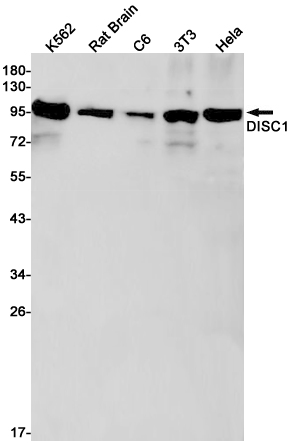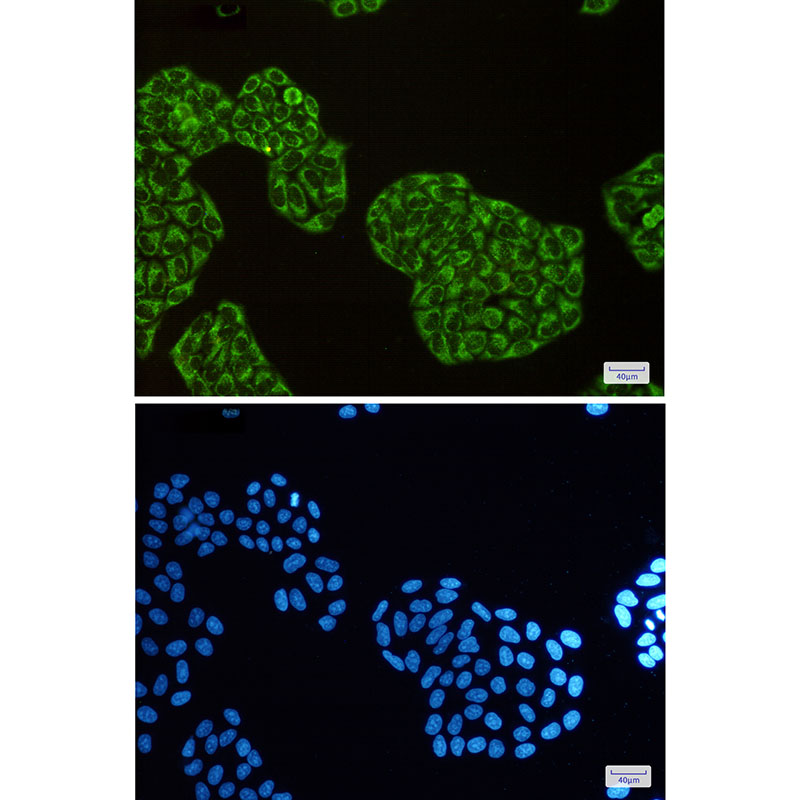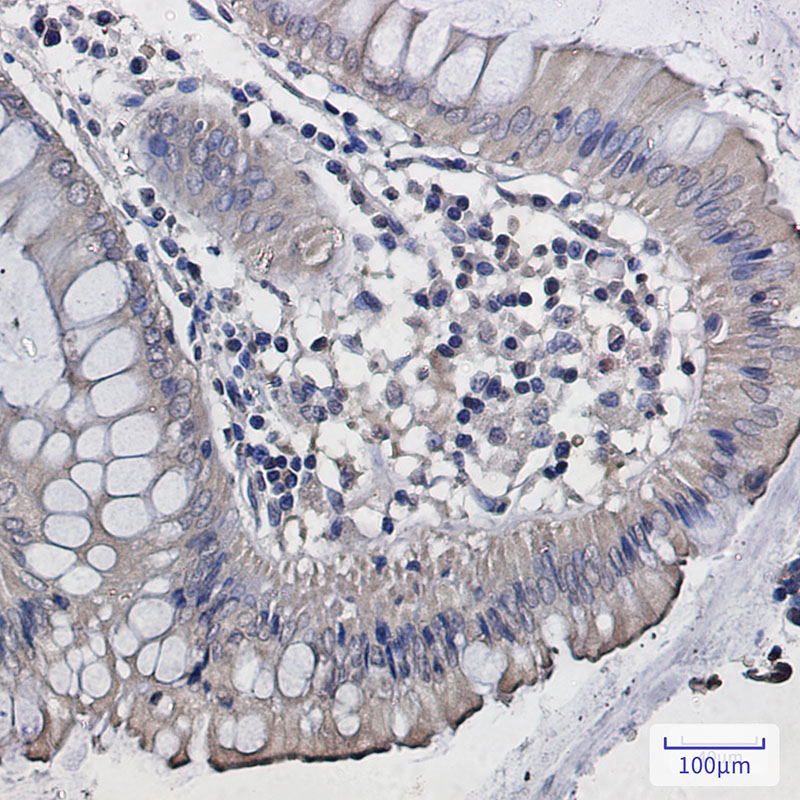


| WB | 咨询技术 | Human,Mouse,Rat |
| IF | 1/20 | Human,Mouse,Rat |
| IHC | 1/50-1/100 | Human,Mouse,Rat |
| ICC | 1/50-1/200 | Human,Mouse,Rat |
| FCM | 咨询技术 | Human,Mouse,Rat |
| Elisa | 咨询技术 | Human,Mouse,Rat |
| Aliases | C1orf136; DISC1; KIAA0457; RP4-730B13.1; SCZD9 |
| Entrez GeneID | 27185 |
| WB Predicted band size | Calculated MW: 94 kDa; Observed MW: 94 kDa |
| Host/Isotype | Rabbit IgG |
| Antibody Type | Primary antibody |
| Storage | Store at 4°C short term. Aliquot and store at -20°C long term. Avoid freeze/thaw cycles. |
| Species Reactivity | Human,Mouse,Rat |
| Immunogen | Recombinant protein of human DISC1 |
| Formulation | Purified antibody in TBS with 0.05% sodium azide,0.05%BSA and 50% glycerol. |
+ +
以下是关于DISC1抗体的3篇参考文献(信息基于公开研究整理,可能存在简化或推测,建议通过学术数据库核实):
1. **《Characterization of DISC1 antibodies and their application to study protein complexes in neurodevelopment》**
- **作者**: Millar, J.K. 等
- **摘要**: 该研究系统评估了多种DISC1抗体的特异性和适用性,验证了其在人脑组织及细胞模型中的检测效果,并利用抗体揭示了DISC1与NDEL1等蛋白的相互作用在神经发育中的关键作用。
2. **《Disrupted-in-Schizophrenia 1 (DISC1) antibody validation for immunohistochemistry and Western blotting》**
- **作者**: Sawamura, N. 等
- **摘要**: 研究对比了不同商业DISC1抗体的表现,发现部分抗体存在非特异性结合问题,提出了优化实验条件(如抗原修复方法)以提高检测可靠性,为后续疾病模型研究提供技术参考。
3. **《DISC1 regulates synaptic vesicle transport via a novel interaction with FEZ1》**
- **作者**: Morris, J.A. 等
- **摘要**: 通过特异性抗体阻断实验,发现DISC1与FEZ1蛋白在轴突运输中的功能联系,提示其突变可能通过影响突触传递参与精神疾病病理机制。
**注意**:上述内容基于领域内典型研究方向概括,如需具体文献,建议在PubMed或Web of Science中以“DISC1 antibody validation”或“DISC1 protein interaction”为关键词检索近期论文。
The DISC1 (Disrupted in Schizophrenia 1) antibody is a crucial tool for studying the DISC1 protein, which is encoded by a gene linked to major psychiatric disorders, including schizophrenia, bipolar disorder, and major depression. The DISC1 gene was initially identified in a Scottish family with a high prevalence of psychiatric illnesses, where a balanced chromosomal translocation (1;11) disrupted its structure. This discovery in 2000 positioned DISC1 as a key candidate gene for neuropsychiatric research.
DISC1 is involved in neurodevelopment, regulating processes like neuronal migration, synaptic plasticity, and signaling pathways (e.g., cAMP, Wnt). Its dysfunction is associated with altered brain connectivity and neurotransmitter systems. DISC1 antibodies are widely used in neuroscience to detect protein expression, localization, and interactions via techniques such as Western blotting, immunohistochemistry, and immunoprecipitation. These antibodies help explore DISC1's role in disease mechanisms and its distribution in brain regions like the hippocampus and prefrontal cortex.
However, research using DISC1 antibodies faces challenges, including variability due to multiple protein isoforms and antibody specificity issues. Validation using knockout models or siRNA is critical to ensure reliability. Despite these hurdles, DISC1 remains a focal point for understanding the molecular basis of psychiatric disorders, with antibodies serving as essential reagents to bridge genetic findings and functional neurobiology.
×